Ask these 5 infinitely reusable questions in any interview
If you want to ace your next interview, make sure to ask these 5 questions. They are versatile and applicable for all kinds of job interviews.
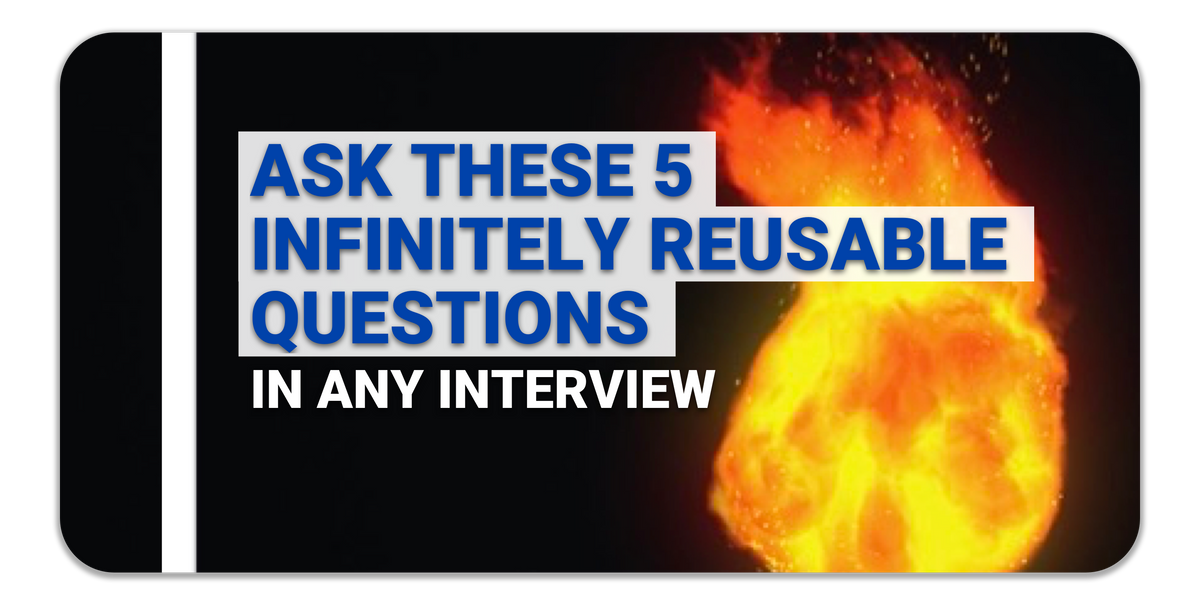
As a job applicant or an interview candidate, have you ever gone into a job interview feeling insufficiently unprepared? Plus, it is even harder to think of customised questions for every sort of interview when you are scheduled for multiple interview sessions in the same week.
Crazy and overwhelming.
Besides these typical common interview questions you will likely be asked, there are potential interview questions and broad topics that you can always ask in an interviewer that can be asked for any kind of interview.
How would you describe the ideal candidate for this role?
Ask your interviewer what he or she thinks the best possible candidate would have in their resume. The type of profile the interviewer expects is crucial in seeing if you fit into their expectations, and since every job interview represents a different employer, you should reuse this interview question to gauge the base requirements for the job.
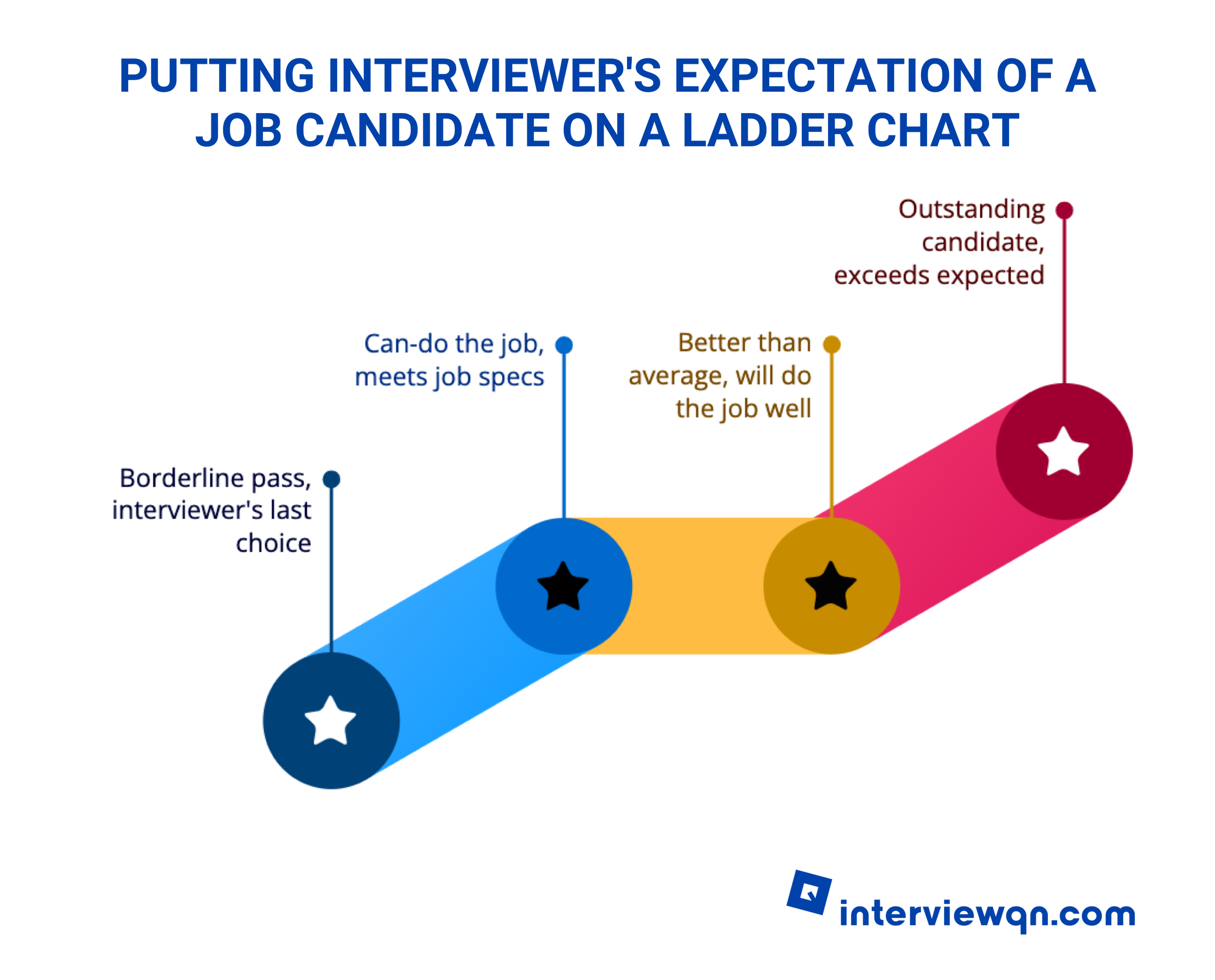
Some interviewers have high expectations which are explicit - these are easy to tackle as the candidate can just explain himself to match his/her past work experiences, projects held, accomplishments, certificates and all that from their resume to fulfil the interviewer's requirements.
However, if the interviewer is unable or unwilling to communicate their expectations of an ideal candidate, then the candidate would face difficulty in ranking well against unknown benchmarks / indicators.
Knowing what the ideal candidate looks like is important for job interviewees. To ask explicitly in every interview he/she attends what the ideal candidate should be is crucial. Because - even for the same position applied, the interviewer describing the ideals during the initial phone screening might not have the same perception as the later round interviewer who may be the direct supervisor. This supervisor would have more intricate knowledge and varied expectations.
Thus, it is important to reuse this question and pose it onto every interviewer the candidate interacts with in order to have a better chance to secure the job.
As an example, the interviewer may expect the person of best fit to be..
The ideal candidate for this role is a highly motivated individual with excellent communication and interpersonal skills. They must be able to work independently and as part of a team, and be able to take direction from senior staff. They should have a strong interest in fashion and current trends, as well as an eye for detail. Finally, they should be organized and efficient, with good time management skills.
Why is this position open and what happened to the person who previously held it?
This question of why there is a job vacancy is applicable to ask in every job interview to get a sense of what you may be getting yourself into. In this question, you are uncovering the biggest challenges someone in this role faces and the expectations of your potential supervisors.
You can expect one of two reply categories when asking the interviewer the reason for the very job you are applying for.
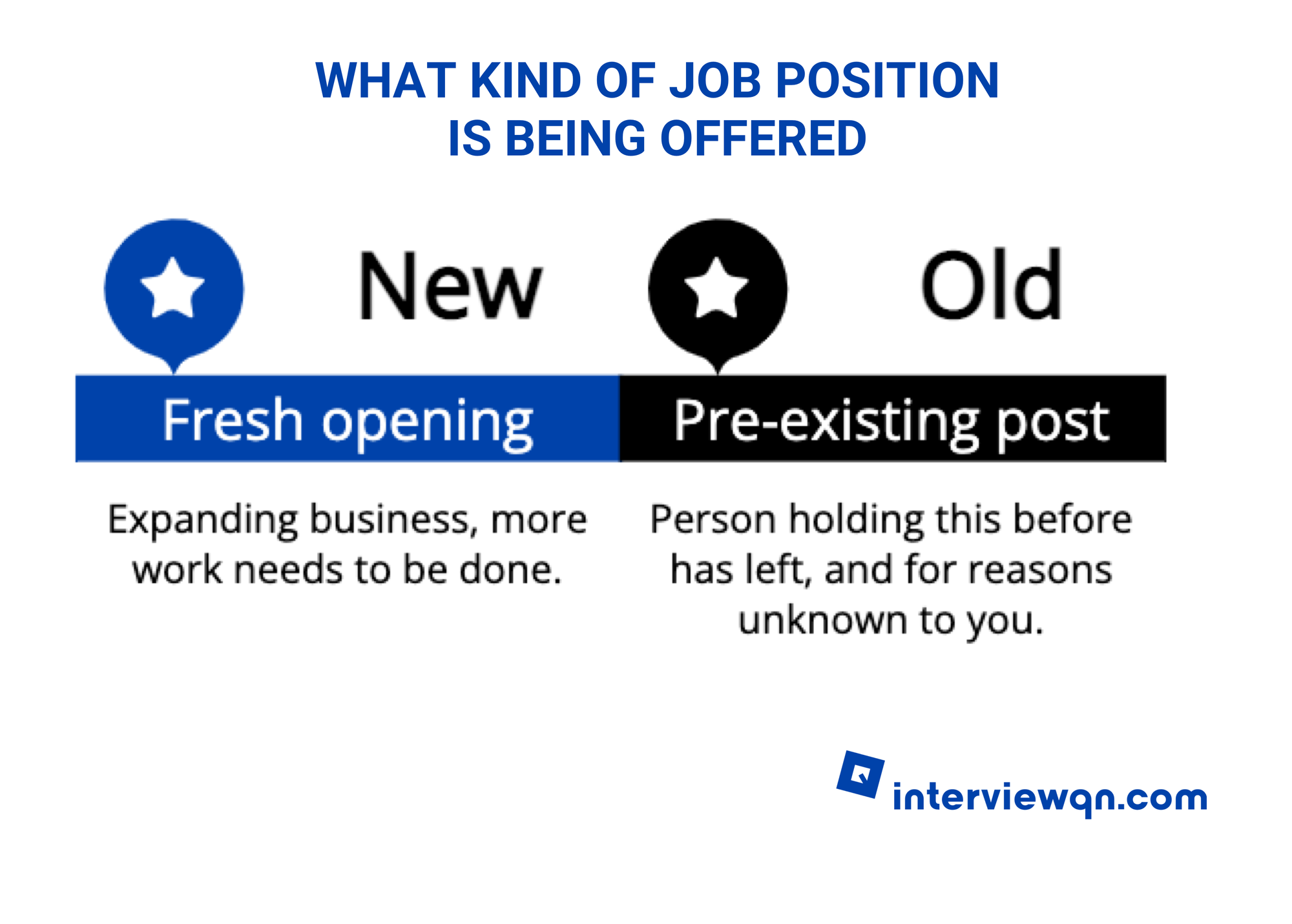
The first is that this job is a fresh position; there is more work to be done, the company is growing and hiring is taking place to reduce the existing workload.
The second and more pressing situation is where the job is too difficult, workload too much, stress is too high, etc and caused your predecessor to quit or be transferred to other departments. Possibly, hiring has opened because the predecessor has submitted his resignation and the management is in a rush after understanding that countdown on his notice period has started. No one wants to take on a position that is only open because the last person couldn't hack it, unless the job offer is lucrative and attractive enough.
The top two reasons for employees quitting in any role is workload management and stress levels. With more work to be done and higher expectations, it can be difficult to keep up without burning out. The key is to find a healthy balance between working hard and taking some time for yourself. Right at the start before you join the company - such interview questions set expectations straight and proper to prevent any miscommunication and misalignment.
What is your favourite thing about working here?
Listen to how your interviewer describes in the very organisation she works in. Is she burnt out, sound tired or look depressed? Just as it is important knowing the weaknesses in a job, every interviewing candidate should be interested in knowing why he or she should join the organisation.
These could be indicators that you may not find it worth to work long term and putting in effort in such a place could be unrewarding.
Repeat this question to every interview position you come across. For similar roles with closely related responsibilities, you can use the work culture you hear to gauge if the environment is a positive experience and somewhere you want to spend your short living life at nearly every weekday.
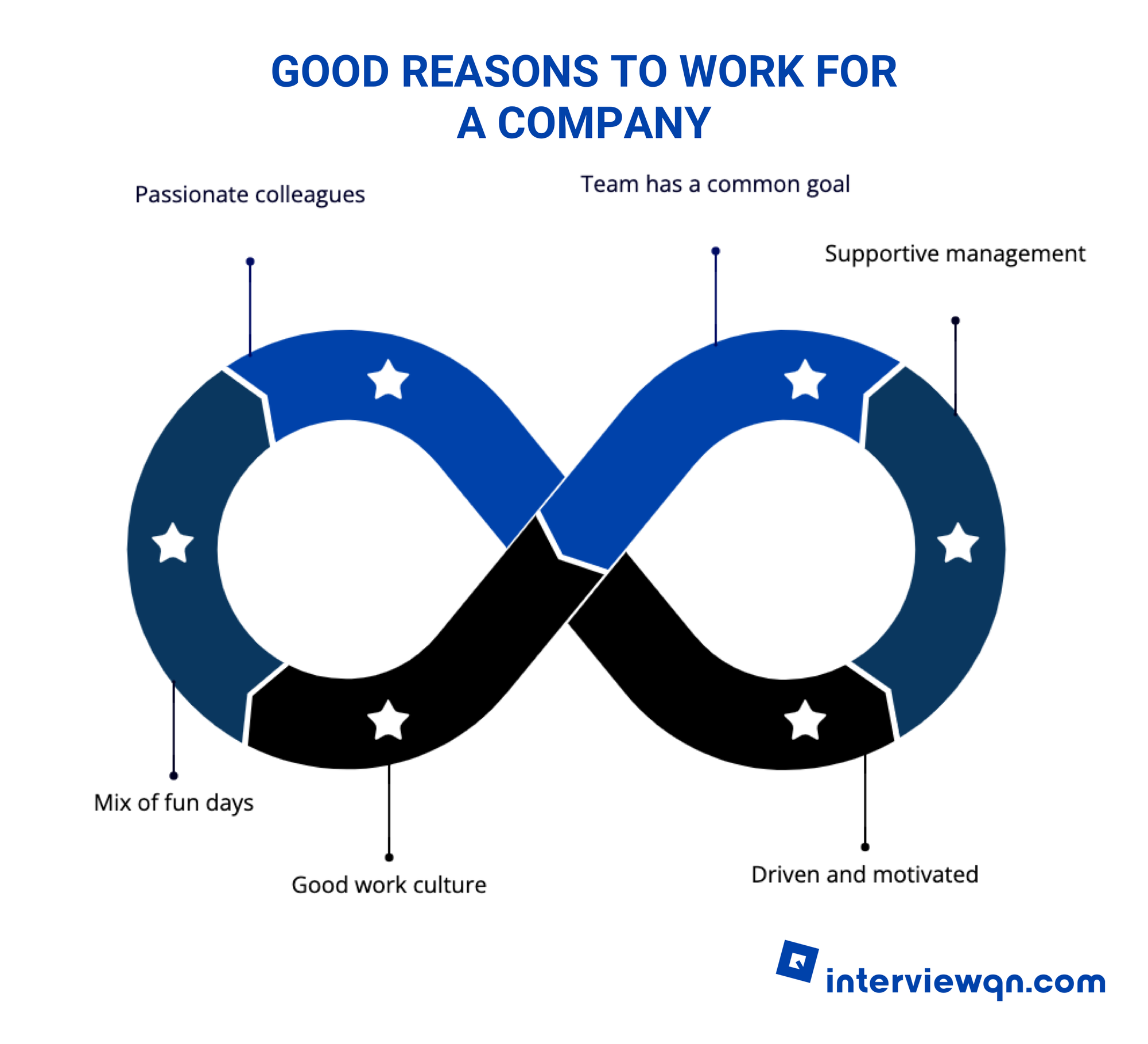
At least, you want to hear a few positive sentences from the interviewers pitching the job:
My favourite thing about working here is the people. I've never worked with a more passionate, driven, and supportive group of people in my life. We're all working towards the same goal and it's truly inspiring. Additionally, the company culture is incredible. There are so many fun events and activities to get involved in, which makes coming to work every day enjoyable.
What does a typical day look like for someone in this role?
Another recyclable question that candidates can pose in any kind (and any round) of any job interview relates to the day-to-day activities of a successful applicant.
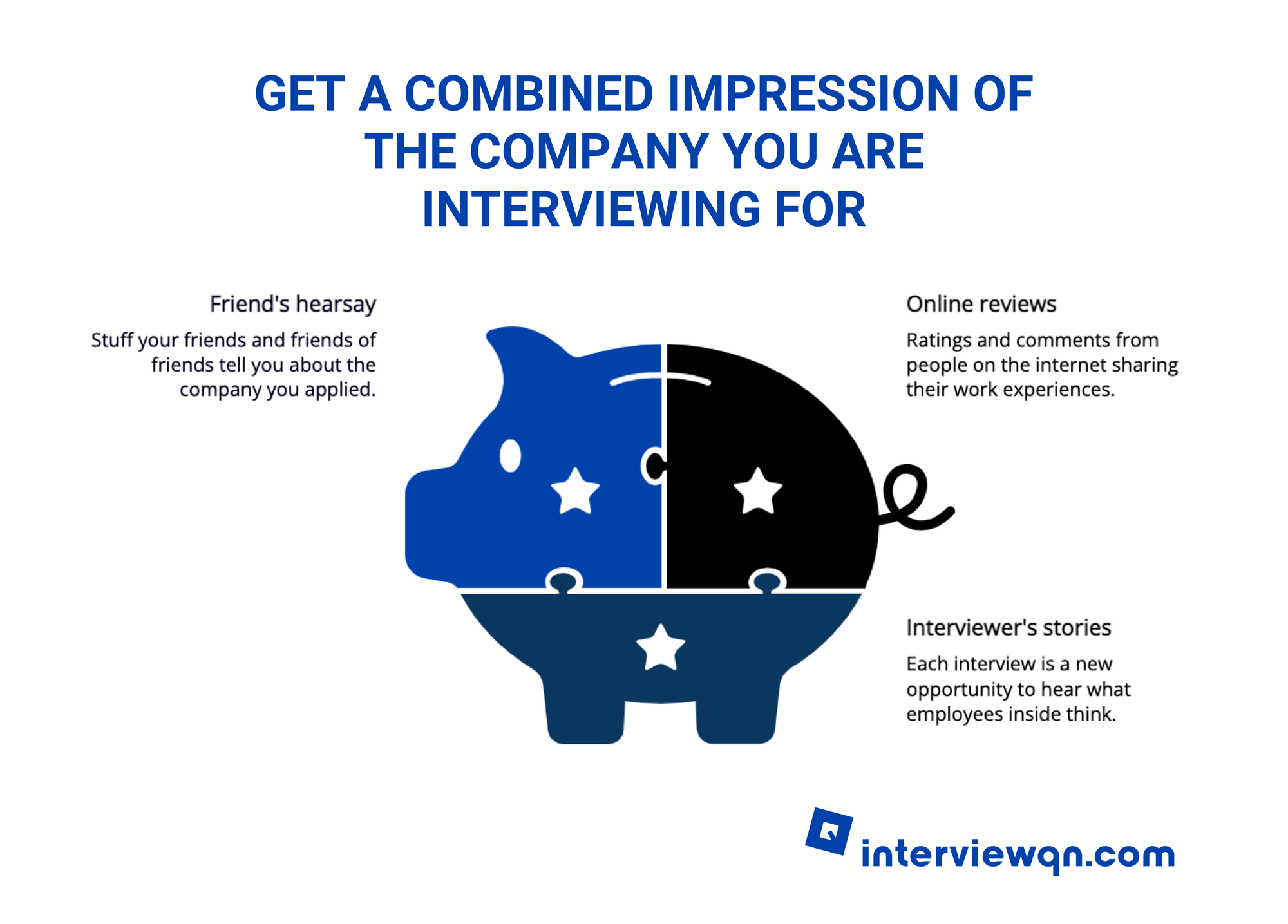
Say you get the job. You come in on day one for orientation and learn the daily rhythm of work along the way. But if you can get the hiring manager (who probably is your direct supervisor or colleague) to elaborate on the routine tasks you need to do on a daily basis, you would have a better idea early on.
Get as much detail as possible from the source (i.e. the "horses mouth") at every single interview you attend. Perhaps, you will find these candid personal recounts of more value than the anonymous reviews on Glassdoor and buttered-up posts by HR advocates on LinkedIn.
Then, use the stories you hear between different interview sessions to compare between job offers you receive to pick the better offer.
Plus, you make the job interview more of a two-way conversation than a one-way interrogation by creating conversation. When the interviewer describes, probe more into the things that are less clear. You can also "buy time" by asking questions, making the opposite party talk so as to build rapport and give you a short breather when you inexplicably become nervous during the interview session.
Conclusion
By asking these 5 questions in any interview, you are sure to gain a deeper understanding of the person you are be interviewed by and their motivations.
Importantly, the interview questions that have been suggested are intentionally phrased in a topically broad manner, such that you can reuse them in any job interview.
These questions can be used over and over again in different interviews to get a better sense of what kind of organisation you are joining and the sort of people you may possibly be working with. Using that learned information from your interviewer, it will be then up to you to decide if the company's values, culture and the soft-interpersonal skills required are suitable for you.
Asking all these questions and thinking more follow-up questions along the way will in all, reduce your struggle in finding a job with a good personal fit that suits you. Find a job that you want; it's not apply volumes of jobs and then end up with offers that on the surface look great, but are essentially incompatible.
Best of luck.
